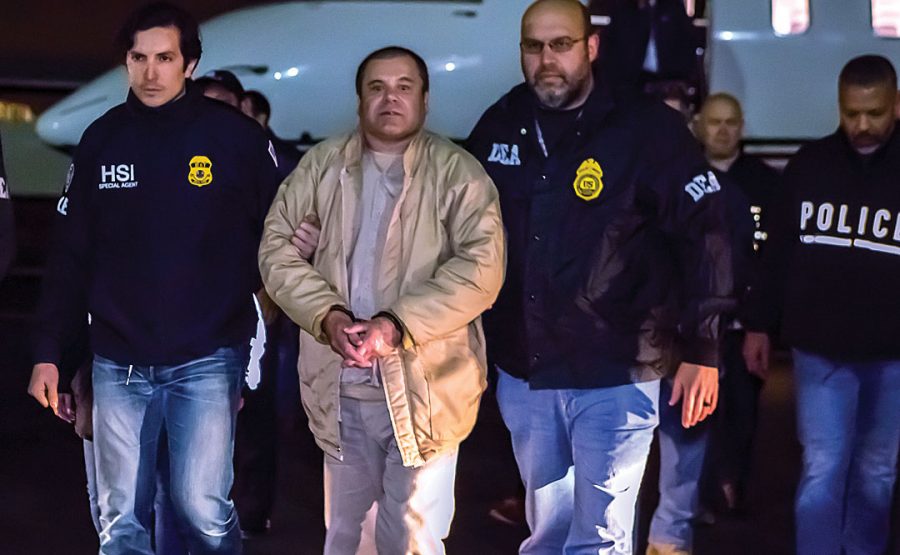El Chapo Accused of Bribing Mexico’s Ex-President
Ted Psahos, U.S. Department of Homeland Security
United States law enforcement officials take “El Chapo” into custody on January 19, 2017.
Enrique Peña Nieto, who served as President of Mexico from 2012 to 2018, was recently accused of accepting a $100 million bribe from notorious drug lord Joaquin “El Chapo” Guzman. According to CNN, the allegations come from Alex Cifuentes, former Colombian drug-trafficker and secretary to El Chapo, “as part of a cooperation agreement [Cifuentes] entered [into] with the United States government.”
Cifuentes gave his testimony over the course of three days in Brooklyn, New York, disclosing information about the bribe and many more details about the daily operations of Guzman, the founder of the Sinaloa Cartel. Cifuentes stated that Nieto had initially asked for $250 million, but ultimately agreed to $100 million, in exchange for ending a nationwide manhunt for El Chapo.
Guzman founded his cartel in 1989, and, after the U.S. Drug Enforcement Agency (DEA) learned of the cartel’s activity, was first incarcerated in 1993. Even from his jail cell, however, he continued to run operations by bribing officials in his prison.
In 2001, Guzman escaped from prison by hiding in a laundry cart and avoided law enforcement until a second arrest in 2014. At that point, he had a net worth well over $1 billion, earning him a spot on the Forbes list of the world’s richest people. He escaped prison yet again in 2015, through a mile-long underground tunnel leading from his cell to a nearby house under construction. El Chapo was recaptured for the last time on January 8, 2016. The following year, he was extradited to the U.S., where he pled not guilty to multiple charges, including the distribution of narcotics, murder, and firearm violations. If convicted, he faces life in prison.
Both Guzman and Nieto have denied the allegations. Nieto’s ex-Chief of Staff released a statement saying, “The declarations of the Colombian drug trafficker [Cifuentes] in New York are false, defamatory and absurd.” According to The Guardian, Brian Cogan, the judge in charge of Guzman’s trial, stated that the jury should rely on existing evidence in the case, rather than recent allegations.
Many believe that relations between Mexico and the U.S. will not shift significantly as a result of the allegations. David Vega ’20, co-head of the Hotchkiss Political Union, said, “I don’t think the allegations will put a major strain [on] the U.S. and Mexico, mostly because I don’t think Trump will care too much about this issue. Nieto’s no longer the president of Mexico; Obrador instead is the president, and I think even if Nieto remained as the president of Mexico…Trump would consider working with him, [since] Mexico is such an important ally.”
Some Mexicans maintain that day-to-day issues in the country are more deserving of attention than news of the allegations. Mexican-American student Aldo Leal ’22 said, “I think it’s because Mexico has many more problems that are more important than just a criminal walking around, like gas [shortage] problems.”






